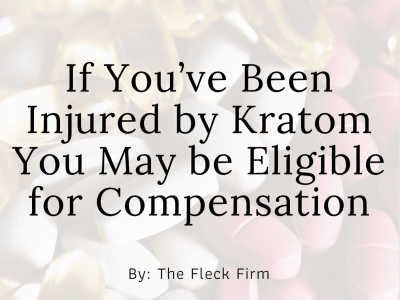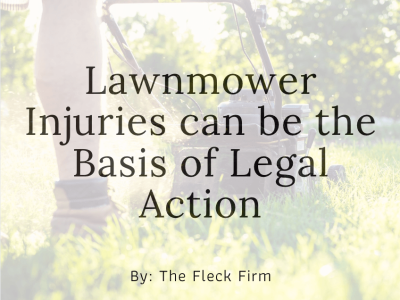Kratom is sold as an herbal supplement but is potentially highly dangerous and has caused several deaths. Those selling it may tell you it’s not harmful, but they don’t know what it will do to you. If you’re using it now, you should stop.
Thousands of US businesses sell kratom and profit from the chemical Russian roulette users play. Kratom is derived from the dried leaves of a tree (Mitragyna speciosa) native to Southeast Asia. It’s been used there for centuries as a folk medicine. Millions of Americans use it a different way, often buying it at vape shops, gas stations, bars, or online, according to NPR.
Kratom-Related Deaths Result in Successful Lawsuits
In July, a kratom distributor lost a wrongful death case brought by the son of 39-year-old Florida resident Krystal Talavera, a regular user, according to the Miami Herald. The victim was found face down and unconscious on her living room floor. She died shortly afterward. An open pack of a concentrated kratom extract, “Space Dust,” was found next to her coffee.
Mitragynine is a psychoactive component of the kratom plant. The coroner’s report on her death stated, “At high concentrations, mitragynine produces opioid-like effects, such as respiratory failure.” The coroner’s conclusion was the cause of Talavera’s death was “acute mitragynine intoxication.”
A Florida federal district judge awarded her family more than $11 million in July. His decision states the defendant, Grow LLC, sold kratom products “without any warning regarding instructions for use,” it is “more dangerous than the ordinary consumer would reasonably expect” and the company was negligent in selling its products.
A day before that verdict was announced, a Washington state court jury awarded $2.5 million to Sybil Coyne and her family, reports the News Tribune. Their local coroner stated that 39-year-old Patrick Coyne, Sybil’s husband and a father of three, died due to the “toxic effects of mitragynine (kratom).”
The jury found defendant Society Botanicals LLC, doing business as Kratom Divine, sold the kratom product Coyne used. They found the company’s owner, Wendi Rook, was also liable.
Other attorneys take contingent fees of 33% to 50% of your settlement.
We want you to keep more of your money.
Our contingent fee is only 30% on cases settled prior to filing suit.
How Much Kratom is Too Much?
Some of those using kratom, often as part of a tea, say it relaxes them and makes them more social or focused. In low doses, kratom is a stimulant and a social lubricant that may help relieve pain, anxiety, depression, and opioid withdrawal symptoms. Higher doses of kratom, like an opioid, may result in a euphoric state and are linked to seizures, addiction, and death.
The federal Food and Drug Administration (FDA) tells Americans not to use kratom because it stimulates the brain like morphine and could be addictive. But, the FDA doesn’t regulate kratom because it’s not classified as a drug. The agency considers it food, so it’s up to consumers to find out what’s in kratom capsules, powders, and concentrates and how to safely use them.
Though kratom may have some beneficial effects, it’s not known how it can be safely used. Users are guinea pigs in a massive medical experiment because it’s unknown what’s a safe or unsafe dosage.
You may see kratom being sold in convenience stores or gas stations. It could be placed next to candy or energy drinks, but it may be the most dangerous thing the business sells. The package may not warn about the risks of its use or how much of it can be safely used.
Billion Dollar Kratom Industry Wants Federal Regulation, Just Not Too Much
The American Kratom Association claims they’re a billion-dollar industry, with more than a ton of kratom imported into the US monthly. Their lobbyist, Mac Haddow, says the Talavera case is “egregious” and “the poster child for why regulations need to be put into effect.” The package of the product the victim used only had its name on it. There were no directions or warnings.
The association welcomes regulation as an over-the-counter supplement, not a drug. If that happens, under federal law, kratom will face a tiny fraction of the oversight a drug would. About a dozen states regulate kratom, and five states ban it. If you haven’t noticed, all the kratom products for sale are unregulated in Kentucky. Being labeled a supplement will also give kratom some legitimacy and possibly more buyers.
After Nearly Two Decades of Research, Much About Kratom is Unknown
Dr. Christopher McCurdy is a University of Florida medicinal chemist interviewed by NPR. He’s studied kratom for nearly two decades. He says the plant shows tremendous therapeutic potential, interacting with novel combinations of brain receptors.
Americans face a far greater threat from kratom than Asians, who traditionally use it by chewing the plant’s leaves. In the US, the plant’s active ingredients are much more concentrated in the products being sold. Why is there no usage guidance? Dr. McCurdy says that safe and unsafe dosages are unknown because “a ton” of more kratom research needs to be done.
Are You Injured or Was a Loved One Killed by Kratom? If So, We Can Help
Whether kratom is regulated or not, whether the federal government considers it a food, drug, or supplement, if it injures or kills someone those making, distributing, and selling it may be legally responsible for the harm it causes. That may come from a lawsuit based on negligence, product liability law, or both.
Call The Fleck Firm at (270) 446-7000 to schedule a free consultation. We’ll discuss what happened, how Kentucky law may apply, and your best options to proceed. Insurance companies have lawyers. You should have one, too.








